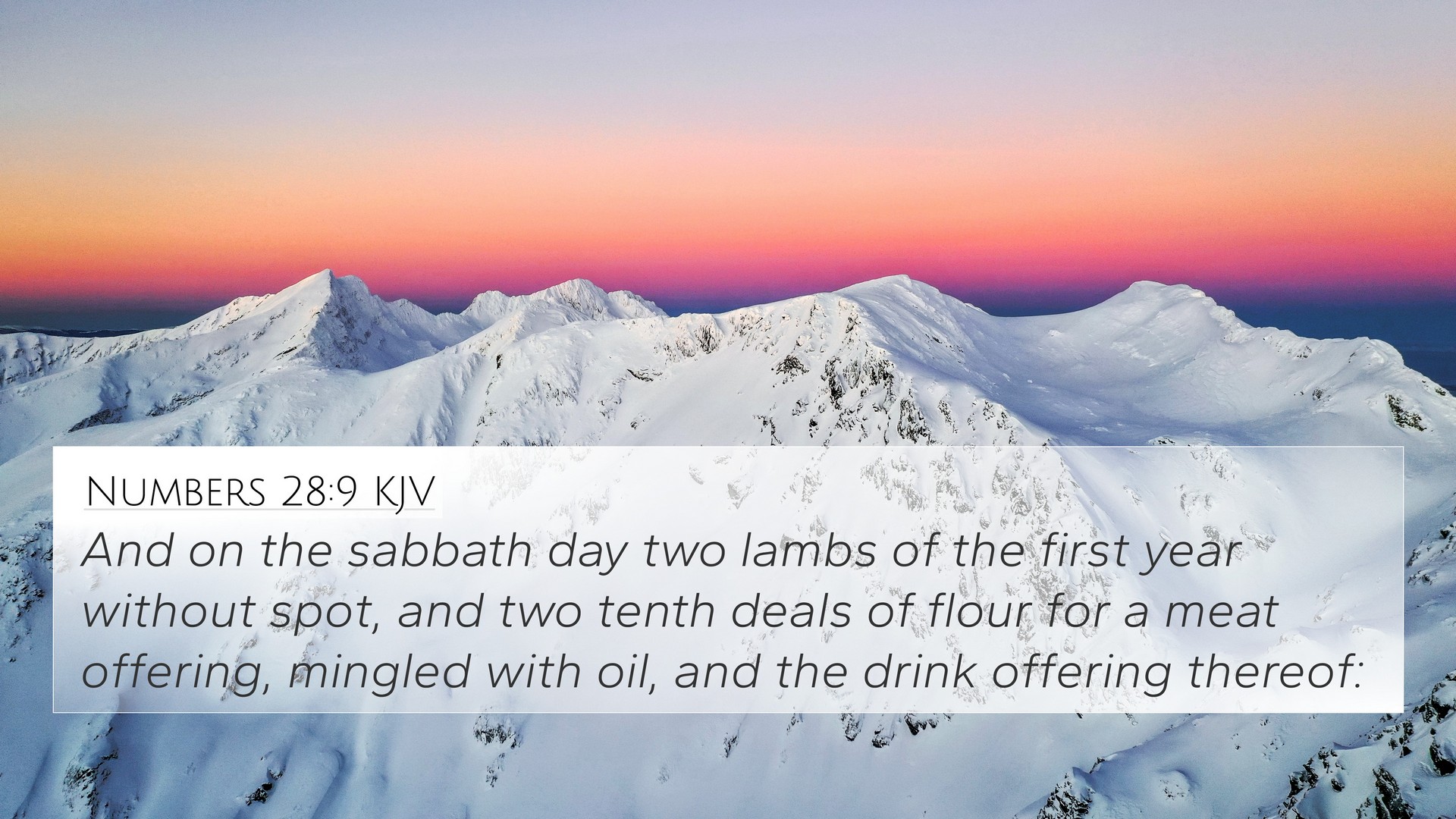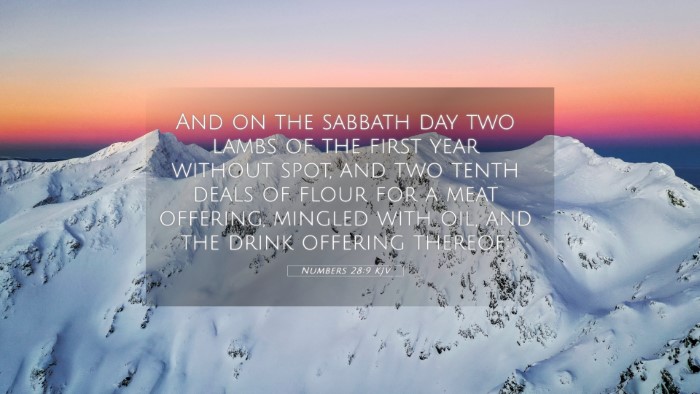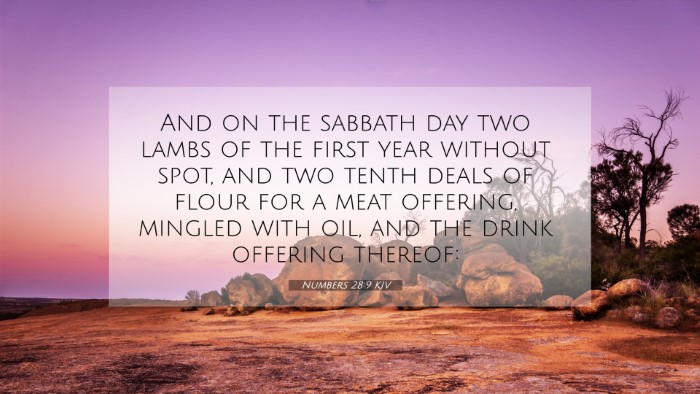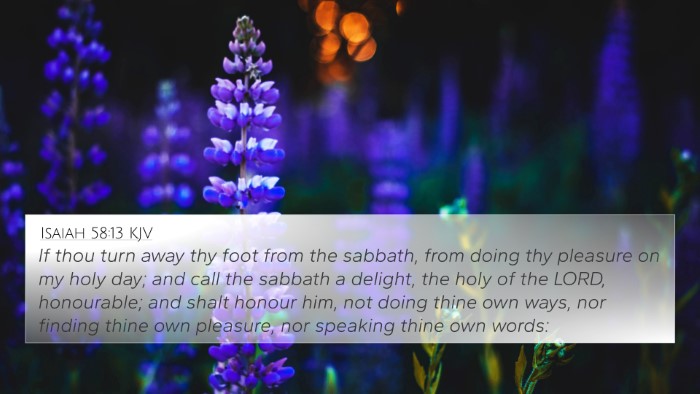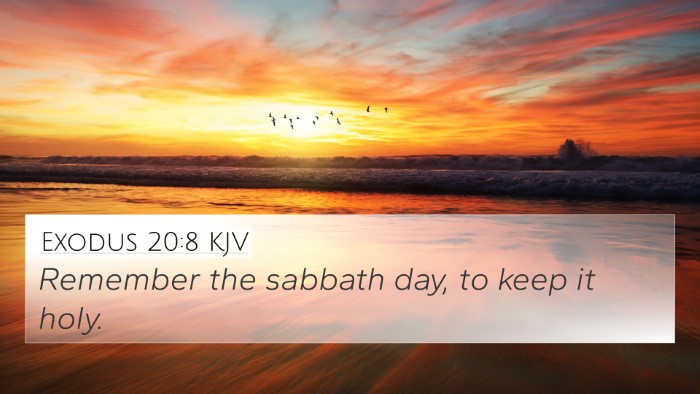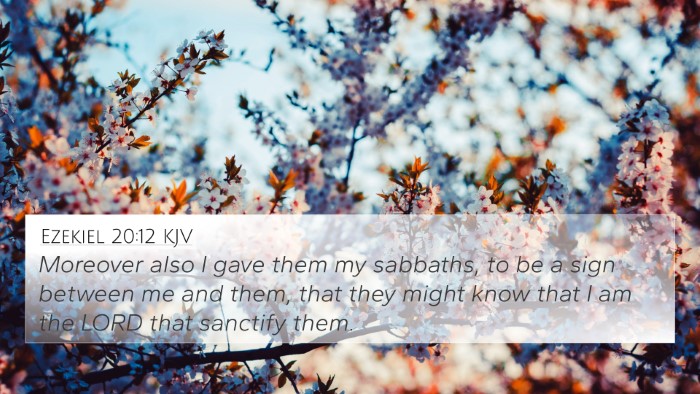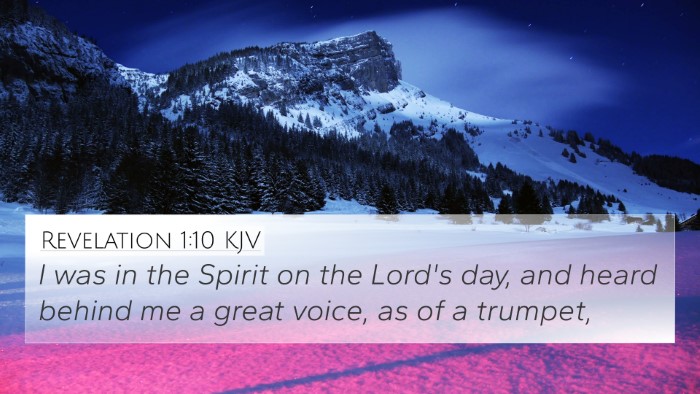Understanding Numbers 28:9
Verse: "And on the sabbath day two lambs of the first year without spot, and two tenth deals of flour for a meat offering, mingled with oil, and the drink offering thereof." (Numbers 28:9)
Summary of Meaning
The verse from Numbers 28:9 emphasizes the importance of offerings on the Sabbath, pointing to the regularity and sanctity of practices within the Israelites' worship. It illustrates the specified requirement for sacrifices made to God, marking the Sabbath as a day of rest, reflection, and communion with the divine. This particular offering underscores both ritual observance and the themes of holiness and consecration.
Commentary Insights
Matthew Henry's Commentary
Matthew Henry stresses that these offerings are part of the divinely ordained rituals meant to acknowledge God's sovereignty. He highlights that the lambs, being without spot, symbolize the necessity for purity in offerings. The inclusion of flour and oil illustrates the elements that enrich offerings, symbolizing gratitude and devotion.
Albert Barnes' Commentary
Albert Barnes interprets the Sabbath offerings as a mandatory aspect of maintaining the covenant between God and His people. He points out that the ritual observance of the Sabbath, with its associated offerings, signifies a communal acknowledgment of God's continuous provision and guidance.
Adam Clarke's Commentary
Adam Clarke elaborates on the significance of the "two lambs" offered on the Sabbath, associating them with the dual themes of atonement and praise. He describes how the number of offerings reflects completeness in worship, reinforcing the notion that each Sabbath is both a cessation from labor and a time for spiritual renewal through sacrificial offerings.
Cross-References to Numbers 28:9
- Exodus 20:8-11: The commandment to remember the Sabbath and keep it holy.
- Leviticus 23:3: Instructions on the Sabbath and holy convocations.
- 1 Peter 1:19: The significance of the Lamb without blemish, paralleling the sacrificial system.
- Ephesians 5:2: The call to walk in love as Christ loved us, linking sacrificial love to worship.
- Hebrews 10:11-14: Comparison of Old Testament sacrifices with the once-for-all sacrifice of Christ.
- Psalm 95:6: A call to worship and bow down as an act of reverence, relevant on the Sabbath.
- Isaiah 56:2: The blessing promised to those who keep the Sabbath and hold it holy.
Thematic Connections and Applications
Numbers 28:9 highlights a key theme in the Old Testament: the importance of regular sacrificial practices in maintaining a holy relationship with God. The requirements set forth signal a clear structure in ancient Israel's worship, drawing a parallel to New Testament teachings on sacrificial love and worship. By understanding Numbers 28:9, current readers are encouraged to reflect on how their worship aligns with scriptural mandates and themes.
Further Insights on Bible Cross-Referencing
Utilizing tools for Bible cross-referencing enhances understanding of scriptural relationships. By engaging in cross-reference Bible study, one can uncover deeper meanings and connections between disparate passages, enriching the overall biblical narrative.
The comprehensive nature of the Bible invites study methods that require identifying connections between Old and New Testament scriptures. Through scriptural cross-referencing, believers can draw parallels, noting the continuity of God's revelations and expectations throughout history.
Conclusion
The study of Numbers 28:9 not only emphasizes the significance of Sabbath offerings but also showcases the broader narrative of sacrifice, devotion, and reverence in worship across the Bible. Engaging with various commentaries and cross-referencing scriptures enables a richer understanding of the text and invites believers to embody the themes of worship within their daily lives.
